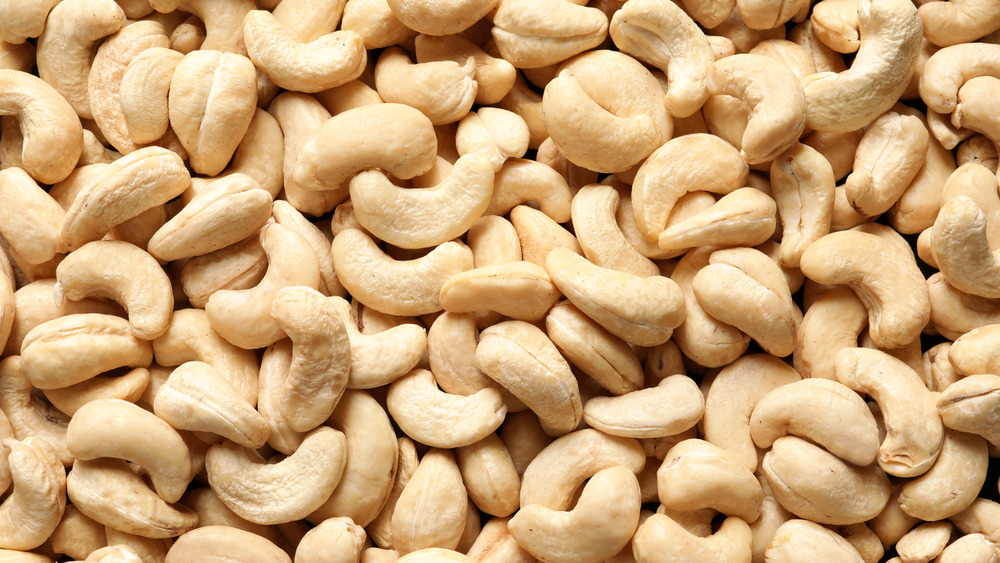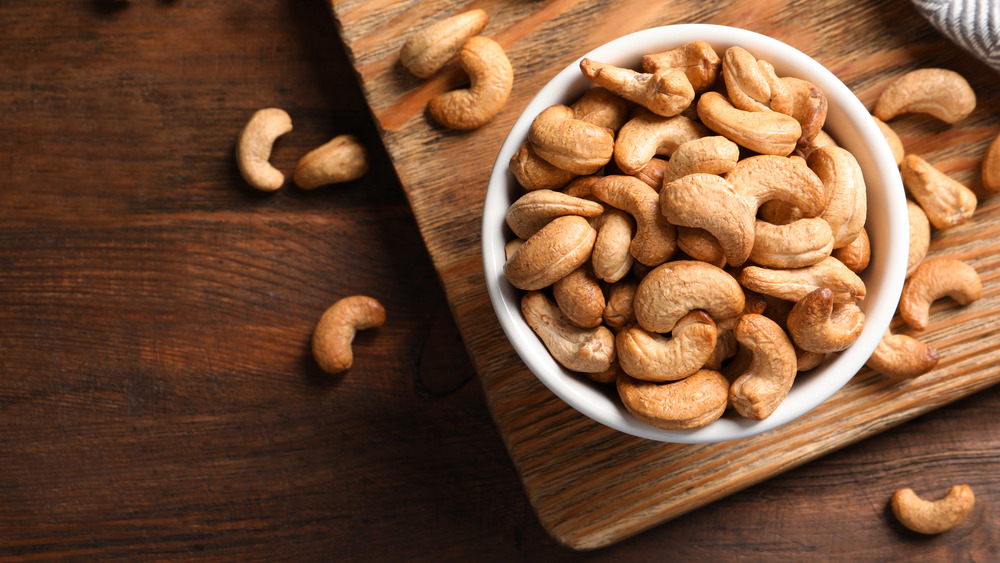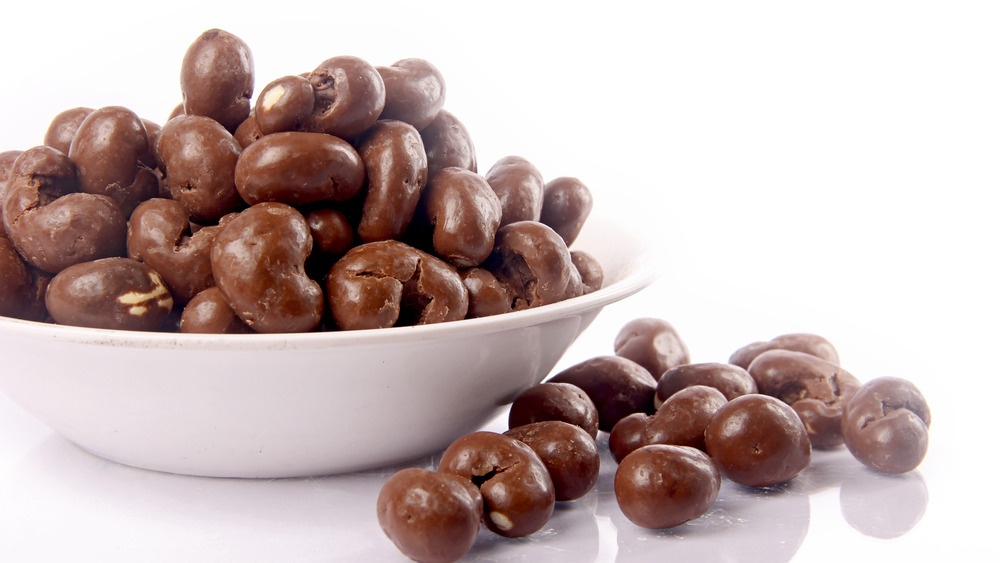Read This Before Eating Another Cashew
Nutrition is at once incredibly basic and overwhelmingly complex. We need food to survive, yet there are endless options when it comes to choosing what to include in our diets. Mashed spoke with Registered Dietitian Sue Heikkinen, the in-house RD for the nutrition app MyNetDiary. Programs that track food consumption and fitness can be helpful to get a better understanding of the net effects on your weight and energy levels. You might even realize that a seemingly innocent snack is completely derailing your results.
Nuts are often considered to be a healthy food option, but it's a bit hard to generalize about the various types. Much like most categories of food, different quantities of calories, fats, minerals, and vitamins make each one unique, with its own advantages and disadvantages. Heikkinen zooms in on cashews and shares the nutritional breakdown from MyNetDiary, noting that "they are nutrient-packed" and "high in heart-healthy monounsaturated fats and important minerals." In particular, cashews contain a good amount of magnesium, iron, zinc, and copper.
Heikkinen warns, however, that portion control is key when it comes to nuts, because "a one-ounce portion of cashews (about 20 cashews) has 157 calories and 12 grams of fat." That might not seem alarming, but it can be easy to mindlessly eat cashews without paying attention to how many you're actually consuming. They also have five grams of protein in the same portion, which Healthline points out can increase feelings of satiety and hopefully help avoid overindulgence.
What effects can cashews have?
Besides the possible weight gain from regularly eating too many cashews, Heikkinen reports that they can lead to digestive discomfort. She explains, "Cashews are high in certain carbohydrates that can contribute to gas, bloating, and diarrhea." While this may not be noticeable for some people, those who suffer from Irritable Bowel Syndrome and are already consuming a low FODMAP diet should not eat cashews, Heikkinen warns. If you really love cashews and can't imagine avoiding them entirely, Heikkinen suggests trying "Activated cashews, which have been soaked for hours, and often then dried [and] are considered low FODMAP."
Digestion aside, Heikkinen advises, "If you are prone to calcium oxalate kidney stones, it would be best to limit cashews and other nuts." Also, if you have allergic reactions to other nuts, particularly pistachios, Heikkinen notes that "cashews could possibly trigger an allergic reaction because they come from closely related plants." In these cases, it is best to consult an allergy specialist to see if they might pose a risk to you.
Roasted, raw, salted, unsalted — the options are endless, but are they actually nutritionally different? Heikkinen clarifies that the calorie and fat content basically remains the same regardless of processing "because cashews are already high in fat content and don't absorb much fat from the roasting process." Even those labeled "raw" have undergone some transformation to be edible, because "all cashews are heat-treated and processed to remove the toxic compound urushiol."
How can you add cashews to a healthy diet?
While fat and calories remain fairly similar, sodium does indeed change depending on how the cashews have been processed. Heikkinen describes the vast range calculated on the MyNetDiary Food Database, noting that "raw or unsalted roasted cashews have only 5 mg sodium, whereas oil-roasted has a moderate 87 mg of sodium and dry roasted has 181 mg." So if you're wondering whether there's a difference, there definitely is! With so much added sodium in the average diet, based on data collected by the Food & Drug Administration, it's definitely worth choosing lower-sodium nut options when possible. As for cashews covered in chocolate, caramel, yogurt, and toffee, Heikkinen notes that they have significant quantities of added sugars. Consider them dessert and keep them as an occasional sweet treat.
Since the basic nutrition profile of cashews remains largely unchanged, unless you need to reduce sodium consumption, Heikkinen recommends to "Eat cashews in the form you enjoy the most." Regardless of which type you eat, she advises avoiding excess and to "Portion cashews and other nuts in a small cup or even a shot glass!" Beyond a savory snack, Heikkinen notes that "Cashews work well in many plant-based recipes." Start with a Broccoli Soup with Cashew Cream and see where the inspiration takes you!


